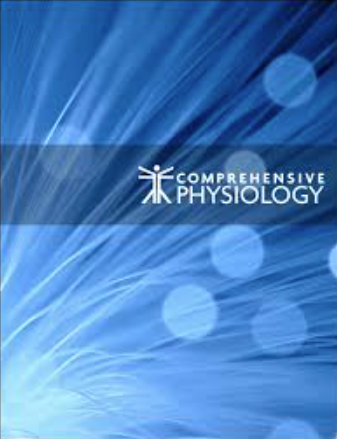Gallstone and Gallbladder Disease: Biliary Tract and Cholangiopathies.
Ludovica Ceci, Yuyan Han, Kelsey Krutsinger, Leonardo Baiocchi, Nan Wu, Debjyoti Kundu, Konstantina Kyritsi, Tianhao Zhou, Eugenio Gaudio, Heather Francis, Gianfranco Alpini, Lindsey Kennedy
求助PDF
{"title":"Gallstone and Gallbladder Disease: Biliary Tract and Cholangiopathies.","authors":"Ludovica Ceci, Yuyan Han, Kelsey Krutsinger, Leonardo Baiocchi, Nan Wu, Debjyoti Kundu, Konstantina Kyritsi, Tianhao Zhou, Eugenio Gaudio, Heather Francis, Gianfranco Alpini, Lindsey Kennedy","doi":"10.1002/cphy.c220028","DOIUrl":null,"url":null,"abstract":"<p><p>Cholestatic liver diseases are named primarily due to the blockage of bile flow and buildup of bile acids in the liver. Cholestasis can occur in cholangiopathies, fatty liver diseases, and during COVID-19 infection. Most literature evaluates damage occurring to the intrahepatic biliary tree during cholestasis; however, there may be associations between liver damage and gallbladder damage. Gallbladder damage can manifest as acute or chronic inflammation, perforation, polyps, cancer, and most commonly gallstones. Considering the gallbladder is an extension of the intrahepatic biliary network, and both tissues are lined by biliary epithelial cells that share common mechanisms and properties, it is worth further evaluation to understand the association between bile duct and gallbladder damage. In this comprehensive article, we discuss background information of the biliary tree and gallbladder, from function, damage, and therapeutic approaches. We then discuss published findings that identify gallbladder disorders in various liver diseases. Lastly, we provide the clinical aspect of gallbladder disorders in liver diseases and ways to enhance diagnostic and therapeutic approaches for congruent diagnosis. © 2023 American Physiological Society. Compr Physiol 13:4909-4943, 2023.</p>","PeriodicalId":10573,"journal":{"name":"Comprehensive Physiology","volume":"13 3","pages":"4909-4943"},"PeriodicalIF":5.2000,"publicationDate":"2023-06-26","publicationTypes":"Journal Article","fieldsOfStudy":null,"isOpenAccess":false,"openAccessPdf":"","citationCount":"0","resultStr":null,"platform":"Semanticscholar","paperid":null,"PeriodicalName":"Comprehensive Physiology","FirstCategoryId":"3","ListUrlMain":"https://doi.org/10.1002/cphy.c220028","RegionNum":2,"RegionCategory":"医学","ArticlePicture":[],"TitleCN":null,"AbstractTextCN":null,"PMCID":null,"EPubDate":"","PubModel":"","JCR":"Q1","JCRName":"PHYSIOLOGY","Score":null,"Total":0}
引用次数: 0
引用
批量引用
Abstract
Cholestatic liver diseases are named primarily due to the blockage of bile flow and buildup of bile acids in the liver. Cholestasis can occur in cholangiopathies, fatty liver diseases, and during COVID-19 infection. Most literature evaluates damage occurring to the intrahepatic biliary tree during cholestasis; however, there may be associations between liver damage and gallbladder damage. Gallbladder damage can manifest as acute or chronic inflammation, perforation, polyps, cancer, and most commonly gallstones. Considering the gallbladder is an extension of the intrahepatic biliary network, and both tissues are lined by biliary epithelial cells that share common mechanisms and properties, it is worth further evaluation to understand the association between bile duct and gallbladder damage. In this comprehensive article, we discuss background information of the biliary tree and gallbladder, from function, damage, and therapeutic approaches. We then discuss published findings that identify gallbladder disorders in various liver diseases. Lastly, we provide the clinical aspect of gallbladder disorders in liver diseases and ways to enhance diagnostic and therapeutic approaches for congruent diagnosis. © 2023 American Physiological Society. Compr Physiol 13:4909-4943, 2023.


